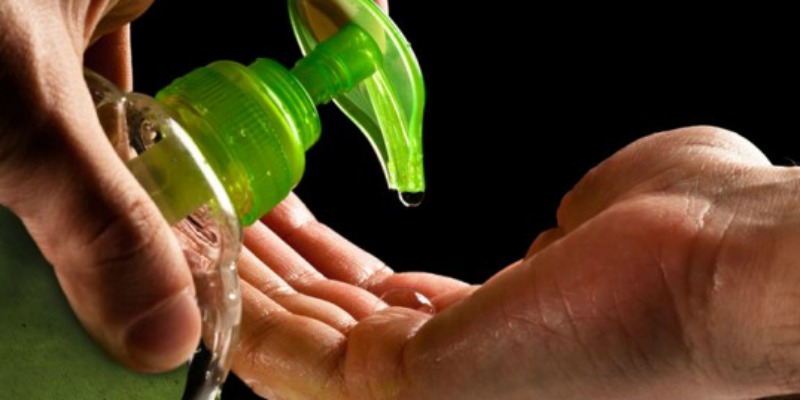If you are obsessed with hand sanitizers and antibacterial soap, you might want to change your habit. We’ve been told that antibacterial and antimicrobial soaps kill germs up to 99.9 %. But have you really looked into the real facts and backed up research? Do we just blindly follow the claims? Does antibacterial soap kill germs?
Triclosan can also be found in dishwashing detergents, shaving gels, toothpastes, clothing and even children’s toys. Originally created for people in the medical field (as a surgical scrub), it has been adapted by commercial industries. According to the U.S. Centers for Disease Control and Prevention (CDC), triclosan can be detected in the urine of more than 75 percent of the population.
Real Dangers and Ineffectiveness of Antibacterial Soaps
- Many bacteria have gained resistance to the compounds in antibactretial soaps which make them no longer effective.
- Antibacterial and antimicrobial soaps are no more effective than regular soaps.
- Triclosan reacts with water and as a result forms chloroform. Chloroform can cause liver/ kidney disease and weaken your immune system.
- A recent study published by Johns Hopkins University has indicated that 75 percent of the built up triclosan in drains is not removed by sewage treatment. When it reacts with sunlight, it creates dioxins that penetrate the human body and become endocrine system disruptors.
- Triclosan has been linked to causing antibiotic-resistant “superbugs,” heart damage, and even cancer.
Some antibacterial soaps and hand sanitizers are made with ethanol alcohol which is a safer option and possesses more germ-killing properties. But overall, you don’t need to buy special antibacterial soaps to wash your hands and kill bacteria (no matter how much the soap companies are trying to persuade you). The Soap and Detergent Association (they represent the $30 billion U.S. cleaning products industry) are doing their best to defend the safety of triclosan. Do your research before you start using any chemically filled products! Don’t forget that your skin is very absorbent. It’s pretty much the same as putting something in your mouth.
As a matter of fact, the FDA ruled on December 16, 2013 that manufacturers of hand sanitizers and antibacterial soaps have to provide detailed reports on the effectiveness of the compounds used in order for the manufacturer to claim that their product is unique or different from regular soaps in killing germs.
Dr. Bronner’s Magic Soaps Pure-Castile Soap, All-One Hemp Peppermint, 5-Ounce Bars (Pack of 6)
sources:
http://www.latimes.com/business/money/la-fi-mo-fda-antibacterial-soap-rule-20131216,0,4627737.story#axzz2pg4AHI74
http://www.fda.gov/ForConsumers/ConsumerUpdates/ucm378393.htm
This content will be shown after all post
Antibacterial soaps are a waste of money as far as I am concerned. I only use Ivory soap. I have been using it all my life and I have never had any problems or complaints.